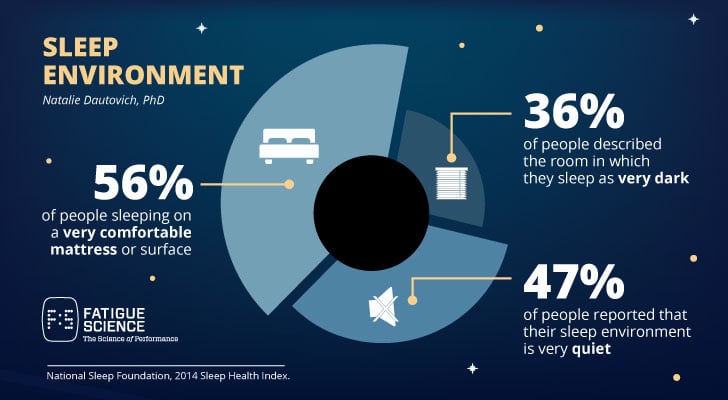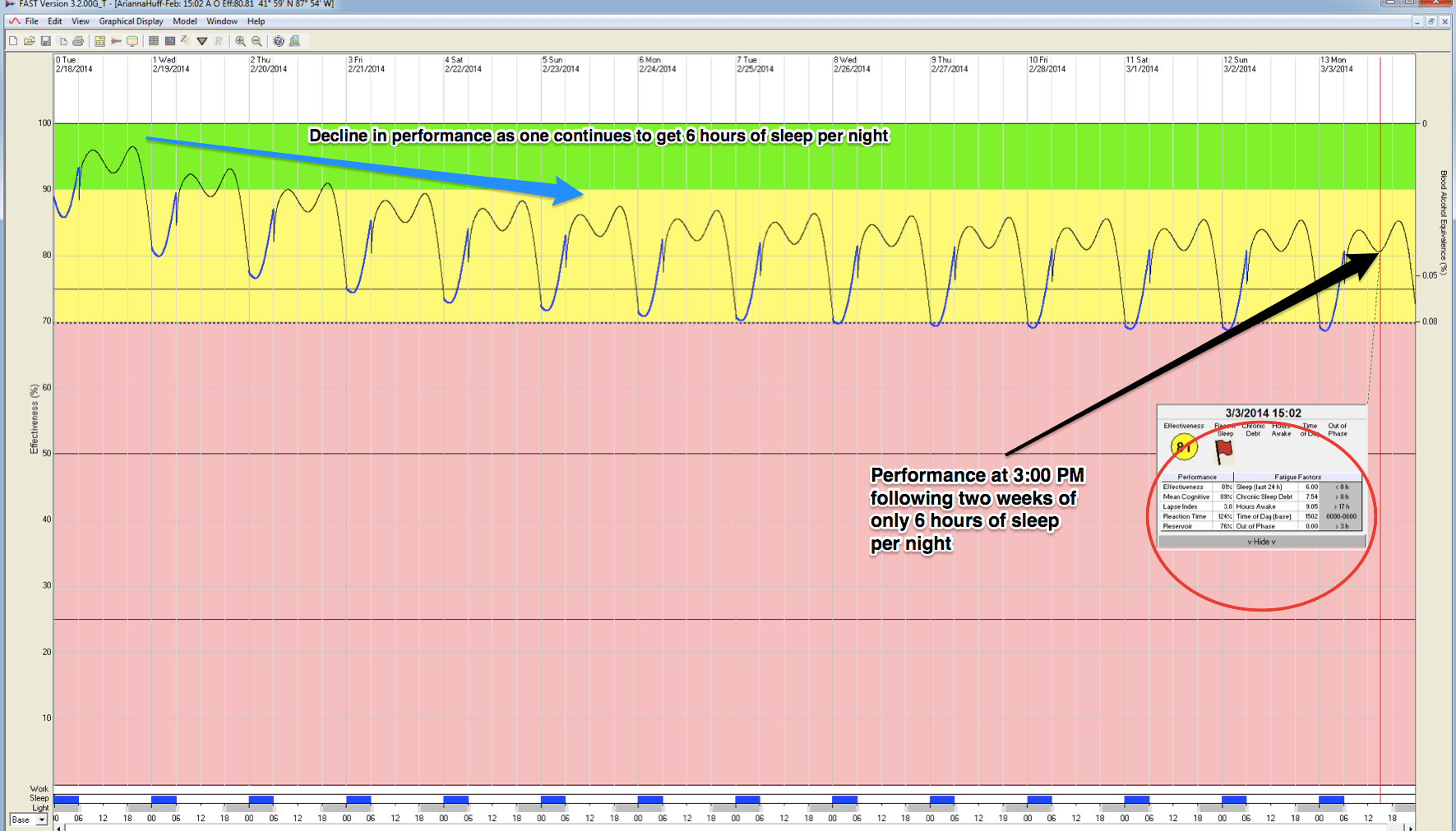The National Sleep Foundation recently released its 2014 Sleep Health Index, which reports the findings of a survey conducted with over 1250 Americans.
The survey found that people, in general, don’t appear to be setting themselves up for a healthy sleep!
Only 47% of people reported that their bedrooms were ‘very quiet’, 36% reported their rooms were ‘very dark’, and 56% reported their mattresses were ‘very comfortable’.

If you haven’t prioritized all three of these, you could improve the quality and quantity of the sleep you’re getting with a few small changes:
1. Shhhh…. – The sounds of urban living and noise from roommates or partners with different work/sleep schedules can interrupt an otherwise restful and restorative sleep. You can make your sleep environment appear quieter (without moving to the rural countryside) by hanging heavy drapery on your windows and turning on a fan or other white noise machine while sleeping. Good quality, comfortable ear plugs can also be purchased inexpensively and can help dampen the sounds of a snoring partner or unexpected thunderstorm.
2. Create a cave – Before the light bulb was invented and the world started operating 24 hours a day, people went to sleep at night when it got dark – the way biology intended for us. Even if your eyes are shut, small amounts of light from a flickering television or poorly shaded window can impact your sleep quality. Creating a ‘very dark’ sleep environment is pretty easy. Start with black-out drapery (like they have in hotel rooms) for your window, then keep glowing devices (like TV’s and mobile phones) out of your bedroom. Still not dark enough? Purchase an eye shade to block out unavoidable light sources at home or while traveling.
3. Build a better bed – If your sleep is restless or you’re waking up with muscle stiffness or aches, it might be time for a new bed. Replacing an older or uncomfortable mattress isn’t a small expenditure, but budgeting to acquire a good quality mattress is an investment that will pay dividends in improving the quality of your sleep and how you feel for the rest of the day.
If you’ve already set yourself up for a good sleep, and still not feeling rested after 7 or 8 hours of rest, you may want to speak with your doctor about sleep health. How does your sleep environment currently compare to those surveyed for the Sleep Health Index?




